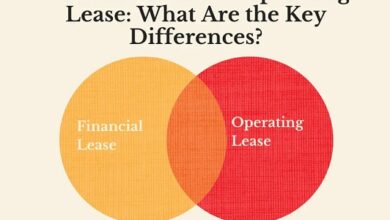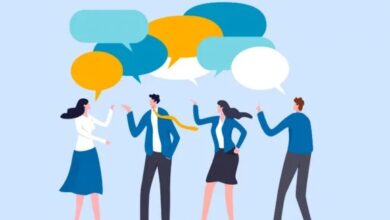What are personal skills with List of personal skills and examples
What are personal skills
In this article we will provide you the information about personal skills with List of personal skills and examples.
According to the definition found, skill refers to the dexterity, talent or aptitude that people have to perform a task effectively. It can be said that when we say that someone is skilled, we are referring to the ability to succeed in the task at hand, thanks to their skill.
Skills can be considered both innate and learning skills , as some of them are acquired only through trial and error.
A distinction of personal skills can be made into three broad groups :
- Cognitive skills : are all those involved in mental processes, that is, memory, logic and the use of formal languages, as in the case of mathematics.
- Social skills : Dealing with others and relevant communication with them are involved in these skills. Here you will find the types of social skills.
- Physical skills : within these are those that require body coordination.
Are skills and abilities, aptitudes or talents the same thing?
According to the RAE, we define capacity as the circumstance or set of conditions, qualities or aptitudes , especially intellectual, that allow the development of something, the fulfillment of a function or the performance of a position.
In turn, aptitude is defined as the innate ability to acquire a certain type of knowledge and to develop in a certain subject since childhood. It can be said that they are all the conditions that a person has as a “base” to fulfill specific objectives.
The talent itself is a “special” intellectual capacity to learn things easily and skillfully develop a specific activity. Talented people excel only in the subject they are good at. They tend to stand out in this activity when compared to others. It is an innate gift that you are born with. While it is true that it can be developed over time, the person who has it will carry out the activity naturally and effortlessly, even without having practiced it.
After analyzing the four definitions individually, it can be said that we are not talking about the same thing , however, all concepts are interrelated among them. In other words, to develop a skill, a person must innately present a certain aptitude for it. In addition, to develop the skills necessary to perform an action, it is not enough to have a skill to do so, but prior knowledge about how to carry out the activity is also necessary.
If a person is capable of performing an action, it is because he has the necessary skill to do it, however, if he is not capable, but if he has the potential to learn to do it, we speak of capacity.
The term talent is more separated from the others when it comes to definition, as it is about doing something in a special way without previous experience, study or training, while skill would be the ability to perform such action through learning .
List of personal skills and examples
Here is a list of skills people can develop over their lifetime. I want to emphasize that the first 10 are, according to WHO, the ones that all people should develop.
- Self-knowledge : ability to be aware of ourselves and know our strengths and weaknesses, as well as recognizing our own feelings.
- Empathy : knowing how to put yourself in the shoes of others is completely necessary to be able to make appropriate decisions that do not affect the rest of the people around us.
- Assertive communication : refers to a person’s ability to express their opinion appropriately, defending their point of view, but always respecting the opinion of others, even if you don’t agree with them.
- Interpersonal relationships : being able to create and maintain relationships with those around us. It does not only refer to relationships with close people, but also work, daily relationships, etc.
- Decision-making : Being able to make decisions based on reasoning and experience will help you to not rush into making decisions that you will later regret.
- Problem and conflict management : it is very important not to get stuck in the moments when a problem occurs. Therefore, being able to manage these situations by making the best possible decisions will allow the person not to get into a stressful situation.
- Creative thinking : this skill gives us a way to look at situations from a fresh perspective, so that we can contribute with new ideas and solutions.
- Critical thinking : ability to assess things and situations through objective assessment and analysis, that is, without getting carried away by opinions.
- Emotions management : being able to understand our own emotions and learn to manage them is a skill that is in continuous learning, but which allows to improve interpersonal relationships. Learn these 12 emotional control techniques .
- Stress and stress management : being able to control stressful situations and not let them affect our effectiveness when performing a task.
- Flexibility and adaptation : all areas of society are constantly changing (technology, science, …), therefore, being able to learn and adapt flexibly to new changes will allow us to face new challenges with confidence.
- Solvability : life is full of problems, so being able to create batteries of proposals to solve them will help us in our performance.
- Ability to work as a team : on a daily basis, we have to live and relate to other people, especially in the workplace. Therefore, having this skill will help us to get an efficient and satisfying job.
- Motivation and confidence : to reach a goal, we need to visualize it and believe in ourselves with confidence and conviction. These thoughts will allow us to increase our motivation and therefore we will try harder to achieve it.
- Knowing how to work under pressure : getting used to managing stress and pressure helps the person with this skill to progress in the best possible way. Always keeping calm.
- Proactive : taking the initiative and anticipating the events that may happen will help the person to develop in a safer way, without the uncertainty of not knowing what will happen.
- Communication : being able to express yourself is a fundamental skill to be able to interact in any area of our life.
- Professionalism : developing good work habits will allow us to efficiently organize and carry out tasks assigned to us.
- Attention : this is a practically unconscious skill, because even if we delude ourselves, our senses are still paying attention to our surroundings.
- Memory : there are people who are surprised by their high memory capacity, however, we all have this skill developed, because each learning we perform is stored in our memory.
- Reasoning : we have the ability to draw conclusions from the reality that surrounds us and the root of this act, as a result.
- Ability to associate : this is considered the basis of any learning, as without the association of action-consequence, we would not be able to understand the causal events that surround us.
- Strength : some more and some less, but we all have the ability to exert muscle tension to overcome resistance that appears to us.
- Endurance : This skill refers to both physical and social skills. It is a person’s ability to sustain an effort over a long period of time.
- Active listening : listening is very different from listening, so being able to pay attention to other people and listen to what they say is really important for our social development.
- Patience: as they say in my field, it is the mother of science. Patience is a skill that helps you relax and avoid getting into situations of continual stress.
- Metacognition : refers to the ability to assess based on cognition itself, that is, having the ability to analyze the information we lack in order to, in this way, optimize and improve our capabilities.
- Inhibition : it is about being able to ignore those stimuli that surround us and that are irrelevant, which can interfere in the development of a task.
- Speed : within physical abilities, we refer to the ability to make one or several moves in the shortest possible time. But in cognitive skills, we refer to the ability to respond or think in the shortest possible time.
- People management : being able to understand the personalities of people around you and adapt your interaction with them to their needs.




